When two rich spoilt brats have nothing better to do, they will start fighting over lamest thing, such as who has the most friends or who has the most beautiful girlfriend. In the case of oil-rich Saudi Arabia, who had just rewarded anti-Muslim Trump with US$350 billion deals to buy U.S.’ friendship, they couldn’t wait to show gas-rich Qatar who’s the big brother in the Middle East.
So here’s what happened on Monday: Saudi, as usual, displayed its supreme authorities in the region when the kingdom, together with three of its best friends – Bahrain, United Arab Emirates and Egypt – all announced that they were severing diplomatic ties with Qatar, as well as suspending air, land, and sea travel to and from the country. Yemen, Libya, Mauritius and Maldives also joined the boycott.
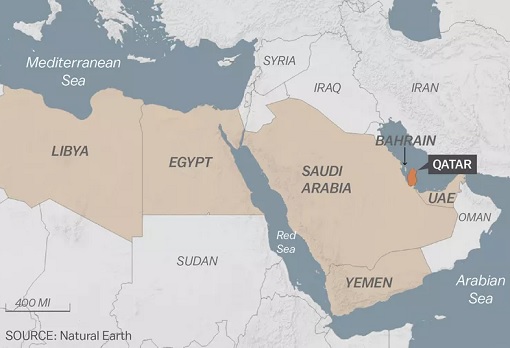
Like kids fighting over lollipops, Saudi and its gang members have unfriended the tiny Kingdom of Qatar. Many thought that Saudi Arabia was the richest kingdom among 22 Arab nations. In actual fact, Qatar is the richest Arab country with a net GDP per capita of US$98,900, follows by Kuwait, U.A.E, Bahrain and Saudi Arabia (GDP: US$24,900).
Make no mistake about it. Despite their wealth, the top-6 wealthiest Gulf nations – Qatar, Kuwait, U.A.E, Bahrain, Saudi and Oman – are the most selfish and inhumane countries in the Middle East. Shamefully, those 6 richest Arab countries have taken “ZERO” Syrian refugee during Syrian Civil War when 9-million Syrians were forced to escape their own country.
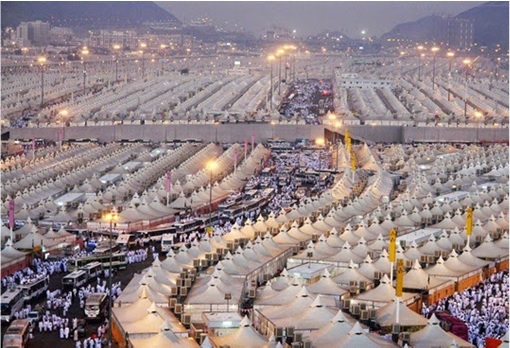
Selling the idea of humanitarian, love, compassion and kindness to the Arabs is like selling a fridge to an Eskimo. They don’t need it. In fact, Saudi has 100,000 unused air-conditioned tents that could easily house up to 3-milion refugees, which are fireproof and equipped with kitchen and bathroom facilities. But Saudi refused to help their Muslim brothers and sisters.
Although Qatar is the richest nation in the region, they aren’t that clever. The kingdom imports most of its food through its land border with Saudi, which is now closed. Even though Qatar has seaports, ships carrying food to Doha will first stop in the U.A.E’s biggest cities, Dubai and Abu Dhabi. That’s why people were panicked and “stockpiling perishable goods.”

King Salman was extremely upset after Qatar’s state-run news agency published an article in which the Qatar’s ruling emir, Tamim bin Hamad Al Thani, was quoted praising Israel and Iran – Saudi Arabia’s biggest rival in the region. Qatar conveniently blamed the article on hackers, an excuse so unconvincingly that Saudi and its friends found it fabulously insulting.
A few days later, Sheikh Tamim added salt into injury by calling Iranian President Hassan Rouhani to congratulate him on his re-election. Trump’s anti-Iran policy has given Saudi its best opportunity to teach Qatar a lesson. That was why King Salman insisted on decorating President Trump like a Christmas tree – gold King Abdulaziz medal.
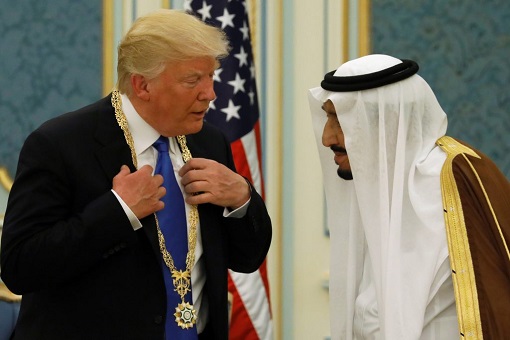
Upon gaining Trump’s support, Saudi made its move by cutting diplomatic ties with Qatar, the tiny kingdom’s most severe diplomatic crisis since independence in 1971. Saudi is accusing Qatar of funding and supporting terrorism and extremism, laughably, an accusation which the world has accused the same Saudi of, for as long as one can remember.
To dramatize its action, Saudi secretly leaked to Financial Times how Qatar paid up to US$1-billion funding terrorism under the pretext of paying ransom for the release of 26 members of the Gulf state’s royal family who were kidnapped in Iraq while on a hunting trip, in addition to 50 militants captured by jihadists in Syria.
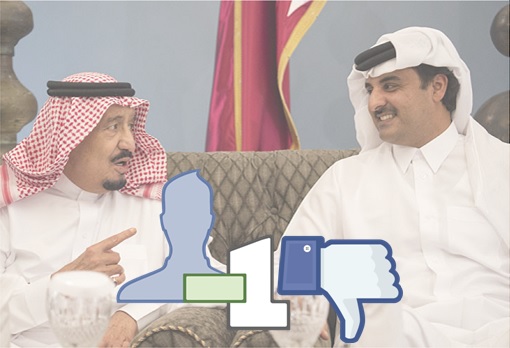
The US$1-billion hostage swap deal was reportedly concluded in April. Apparently, about US$700-million was paid both to Iranian figures and the regional Shia militias they support. Another US$200-million to US$300-million went to Islamist groups in Syria, of which US$120-US$140 million of that entered Tahrir al-Sham, a group with links to al-Qaeda.
While it looks like a creative way to bankroll jihadists in Syria, that wasn’t what that has actually irritated Saudi. After all, Saudi itself is known as the biggest sponsor and supplier of terrorism in the world. What actually disgusted and frightened Saudi was the fact that those money from kidnapping drama have gone to Shia Iran, the main enemy of Sunni Saudi.
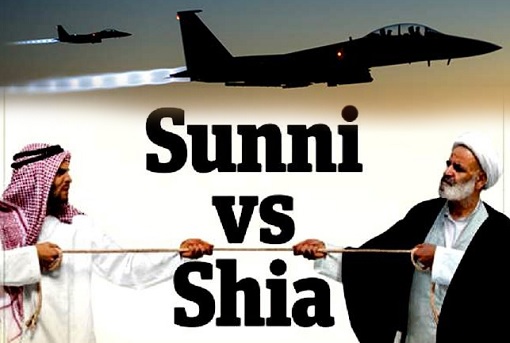
Tahrir al-Sham is believed to be one of many al-Qaeda branches, the same way Iraqi group Kata’eb Hezbollah is to Iran’s main regional proxy, Hezbollah. Another Islamist group Ahrar al-Sham, received US$80 million in the hostage deal. This is not the first time so-called Qatar royal family members have been kidnapped. Kata’eb Hezbollah kidnapped some Qataris back in December 2015.
Of course, it would be foolish to believe that Saudi went bananas just because it discovers brother Qatar has been funding terrorism and extremism. The hidden reasons are more complicated than that. Qatar is actually trying to dethrone Saudi as the big brother in the Middle East. The only reason Qatar channels money to Iran was to strengthen Saudi’s enemy.
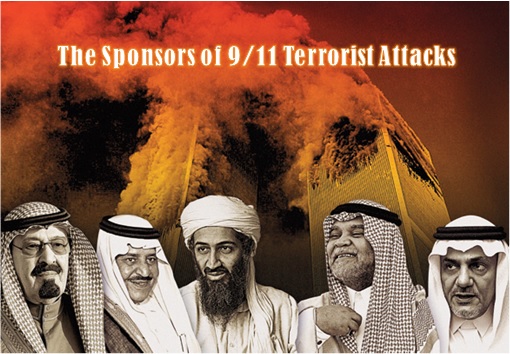
True, Saudi was the architect of terror group such as al-Qaeda but whatever spinoffs from the group are beyond Saudi’s control. The Daesh (ISIL, ISIS, IS) is a classic example of a terror group spun from al-Qaeda which Saudi has little control. Together with Muslim Brotherhood and Hamas, these are three radical Islamist groups under Qatar’s backing.
Muslim Brotherhood was used by Qatar to spark the infamous 2011 Egyptian Revolution. Qatar’s preferred candidate, Mohamed Morsi, won the June 2012 presidential election, only to be overthrown after mass protests in July 2013, thanks to Saudi’s support. That’s an example of how Qatar interferes, destabilizes and weakens other Sunni kingdom’s affairs aligned to Saudi.
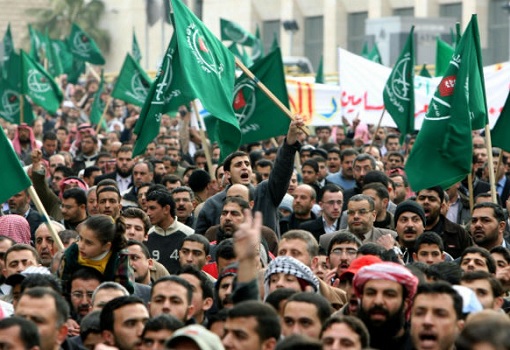
Qatar has claimed that it is a descendant of Sheikh Mohammed bin Abdulwahab, the founder of Wahhabism. In fact, Doha deliberately inaugurated a mosque in 2011 after Sheikh Mohammed bin Abdulwahab to legitimize its claims. Yes, even within Wahhabism, there’s a wide dispute over the legitimacy of another Arab’s royal family.
King Salman, of course, couldn’t afford to sit silently while the Qatari Emir continues belittling and undermining Saudi’s influence and power. Emir Tamim bin Hamad Al Thani knew the concept of “the enemy of my enemy is my friend”. That explains why Sunni Qatar is befriending Shia Iran, while Sunni Saudi has unfriended Sunni Qatar.
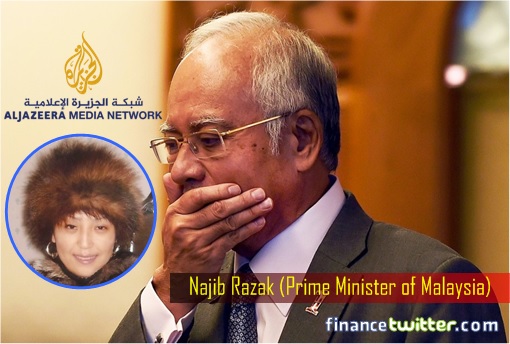
Al-Jazeera, Qatar’s influential satellite channel was used to criticize Saudi and other pro-Saudi governments. For example, Al-Jazeera released an explosive documentary – “Murder in Malaysia” – linking Malaysian Prime Minister Najib Razak to the murder of Mongolian model Altantuya. Mr. Najib was then seen by Qatar as a minion of Saudi, so much so that he would parrot whatever Saudi said.
Economically, Saudi has increasingly gotten jealous of Qatar’s growing financial “independence”. Qatar used to be a Saudi vassal state, but no more. Qatar no longer says how high when Saudi asks it to jump. As the biggest exporter of liquid gas in the world, Qatar is out of Saudi’s control, unlike OPEC where Saudi dominates the oil cartel.
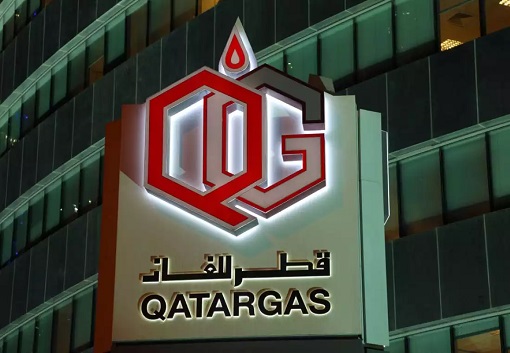
When President Trump commanded all Arab nations to isolate Iran during his visit to Saudi Arabia, Qatar publicly disagreed. That speaks volumes about Qatar’s rebellion. The present Qatari Emir, whose father toppled his own pro-Saudi father in 1995, still remembers a coup attempt organized by Bahrain and endorsed by Saudi in 1996.
Saudi wants Qatar to cave in to its demands, whatever they are. But Qatar has its own trump cards. Saudi and its friends heavily depend on Qatar’s gas. The demand for natural gas to produce electricity and power industry has been growing in the Gulf States. Qatar can close the taps and the rest of Saudi friends would be screaming for help.
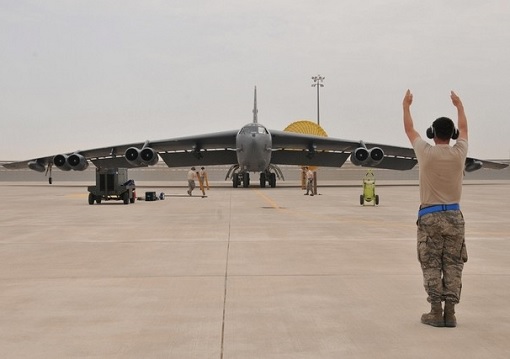
The small kingdom also hosts the largest U.S. military base in the Middle East, a home to some 11,000 U.S. military personnel. The US Combined Air Operations Centre (CAOC) at Al Udeid Air Base, Qatar, provides command and control of air power throughout Iraq, Syria, Afghanistan, and 17 other nations. The base is a strategically important facility that can accommodate up to 120 aircraft.
Sure, Saudi has oil but Qatar has gas. Saudi has Taliban, al-Qaeda, Lashkar-e-Taiba and the Al-Nusra Front as its terrorist groups. Similarly, Qatar has Muslim Brotherhood, Islamic State and Hamas. In a secret paper released by WikiLeaks, then-US secretary of state Hillary Clinton said both Saudi and Qatar were the largest source of funds to terror group ISIS.
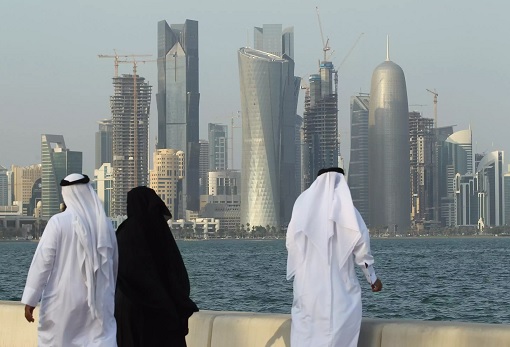
Despite Trump’s latest tweets that appear to encourage Saudi’s bullying, historically, Qatar looked overseas for protection against Saudi. The British kept the Saudis from extending their rule to its coastal protectorates in the 1920s. If Trump and King Salman push further, Qatar could be forced to go to Iran, Turkey and even Russia for protection. Can you imagine Russian taking over U.S. military base in Qatar?
Other Articles That May Interest You …
- Trump The Great – No Kowtow To King Salman, Rewarded With $350 Billion Deals
- Sponsor & Supplier – Majority Of ISIS Militants Are Citizens Of Saudi
- WikiLeaks: Hillary Clinton’s Email – Saudi And Qatar Are Funding Terrorist ISIS
- Exposing 9/11 Secrets – How Saudi Terrorism Began In 1979’s “The Siege Of Mecca”
- Proof That Top-6 Wealthiest Gulf Nations Are Selfish & Inhumane
- Saudi Has 100,000 Unused Air-Conditioned Tents, But Won’t Help Refugees
- Be Very Afraid Najib, Mahathir Has Unleashed Altantuya Card
- The Answer To ISIS Invasion Threat – The Great Wall Of Saudi

|
|
June 7th, 2017 by financetwitter
|


|

|

|

|

|

|




























Please correct: it is not Mauritius but Mauritania. Mauritius is not a muslim country (more than 50% of its population are hindus).